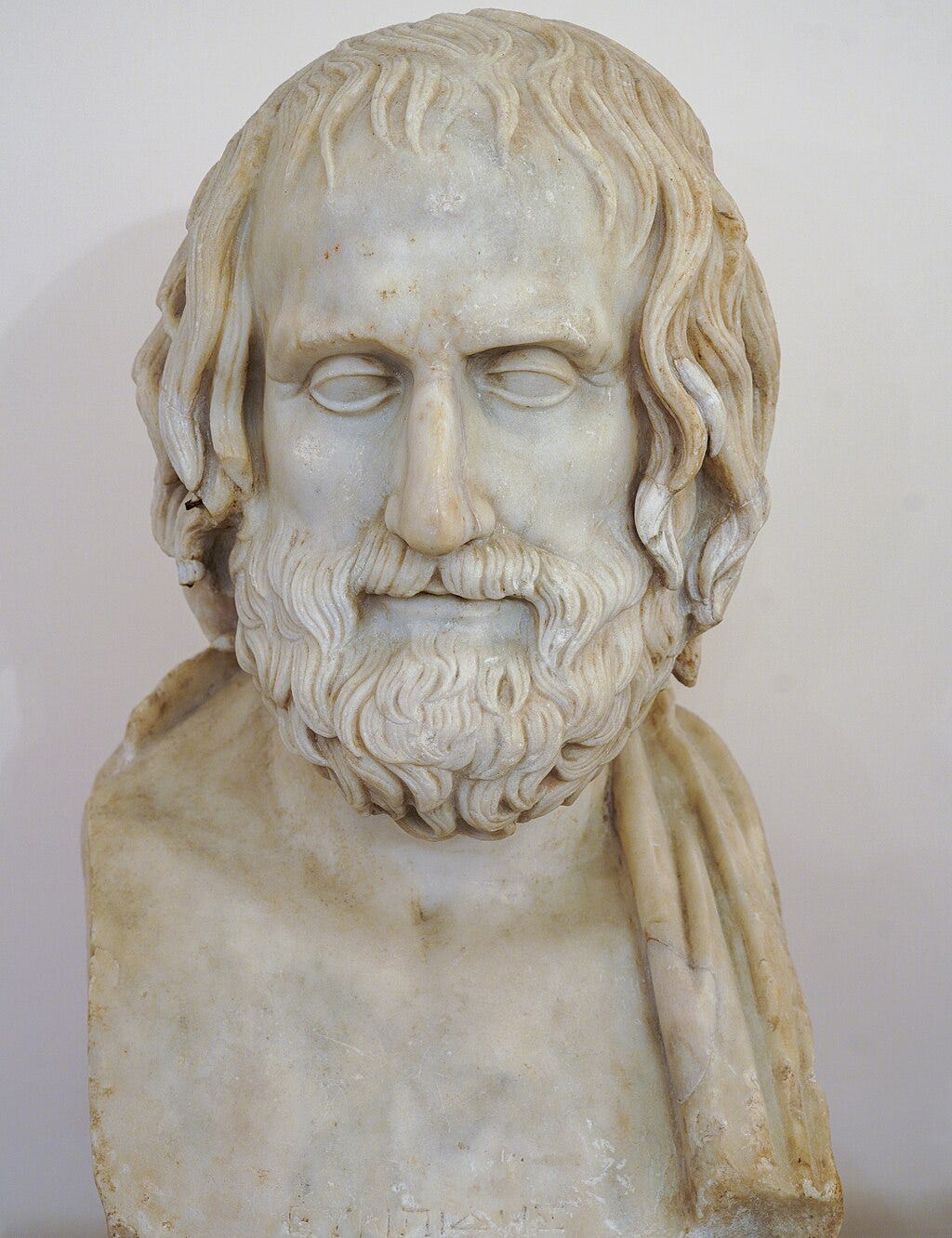Since I just finished reading Euripides’ Bacchae in Greek, with help from Abby and Emer and The Catherine Project, it seemed an appropriate moment to share Musil’s thoughts on this great Greek writer.
According to his friend, Erwin Hexner, who with his wife vacationed with the Musil’s in Marienzell in March and April of 1934 and discussed with him many things, including Wittgenstein, Santayana, and Condorcet (“He studied Hegel, Marx und Spengler in order to refute them. He admired the work of the Viennese philosopher, Karl Popper, who was still young at the time…”), Musil’s great love among the Greek writer-philosophers was Euripides.
“He identified with him more or less, since [Euripides] was admired but not appreciated during his lifetime. He found the inconclusive endings of the Euripidean drama (in which the heroes neither died tragically nor experienced a righteous triumph) as true to life. He found Euripides’ mockery of the Greek gods (with the exception of Zeus) and his description of their “human” sins courageous and brilliant, though unpopular within the context of his contemporary political circumstances. What moved him the most was Euripides’ skeptical theory that came to light in his literary works: that the order of cosmos and the effect of divine providence was neither simple nor transparent. The Euripidian drama sharply expresses that earthly and ethical legal systems often leave noble deeds unrewarded and cruelties and evil unpunished.”
Hexner noted that Musil was also interested in the cool and even antagonistic attitude of Sophocles, Aeschylus, and Aristophanes toward Euripides and that he sympathized with Euripides’ status as a sort of heretic. His life as an emigrant in Macedonia also fascinated him—and this before he himself became an exile.
(Hexner text from En Face-Texte von Augenzeugen, edited by Karl Corino.)





Love this, Genese. Keep going!